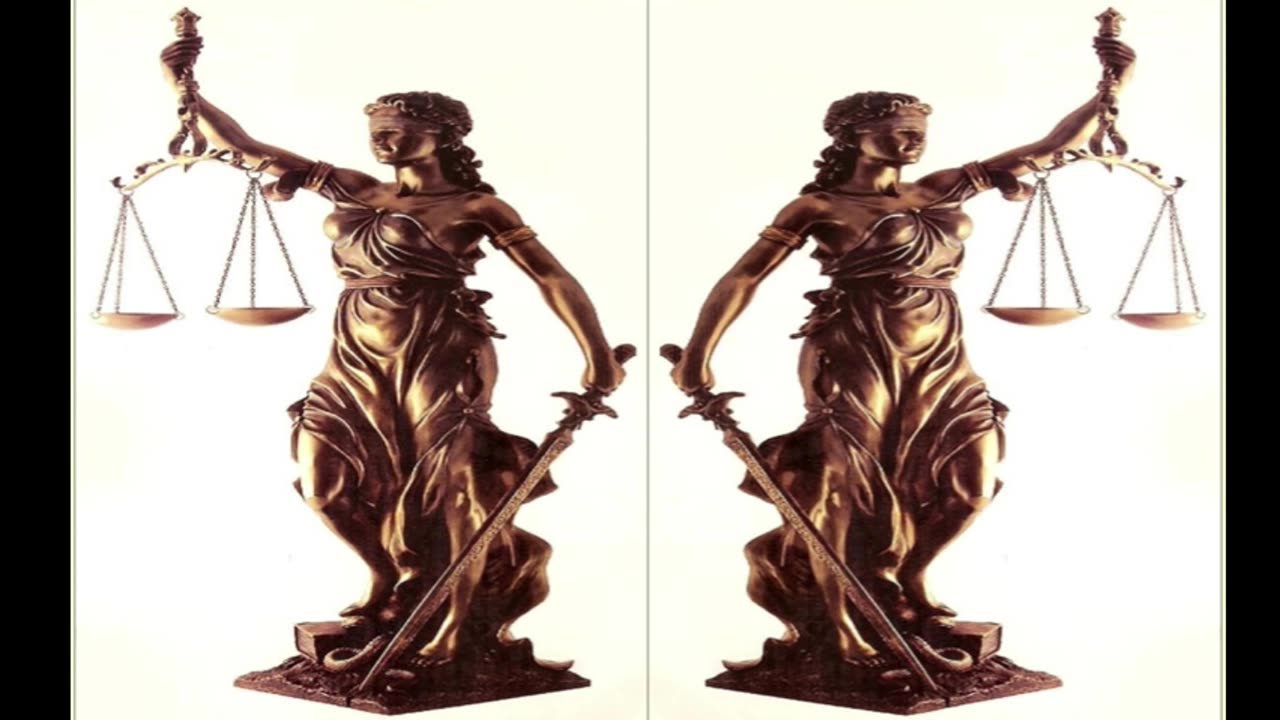Premium Only Content

Courts and Criminals by: Arthur Cheney Train (1914)
"Courts and Criminals" is a collection of essays by Arthur Cheney Train, published in 1914. Drawing from his experience as a former assistant district attorney in New York, Train provides an insider's perspective on the American legal system of the early 20th century. The essays delve into various aspects of criminal law, courtroom dynamics, and societal factors influencing crime.
Overview of the 12 Essays:
1. The Pleasant Fiction of the Presumption of Innocence
Explores how the ideal of "innocent until proven guilty" often contrasts with the realities of the justice system, where biases and preconceived notions can influence outcomes.
2. Preparing a Criminal Case for Trial
Discusses the meticulous process prosecutors undertake to build a case, from gathering evidence to strategizing courtroom presentations.
3. Sensationalism and Jury Trials
Critiques the impact of media sensationalism on jury impartiality, highlighting cases where public opinion swayed judicial proceedings.
4. Why Do Men Kill?
Investigates the psychological and sociological factors that lead individuals to commit homicide, challenging simplistic explanations.
5. Detectives and Others
Provides insight into the world of private detectives, contrasting their methods and ethics with those of official law enforcement.
6. Detectives Who Detect
Highlights cases where detectives showcased exceptional skill and intuition, emphasizing the art of investigation.
7. Women in the Courts
Examines the unique challenges women face in the legal system, both as defendants and plaintiffs, and the evolving perceptions of their credibility and roles.
8. Tricks of the Trade
Reveals various tactics employed by lawyers to sway juries and judges, shedding light on ethical gray areas in legal practice.
9. What Fosters Crime
Analyzes societal conditions that contribute to criminal behavior, such as poverty, lack of education, and systemic injustices.
10. Insanity and the Law
Delves into the complexities of the insanity defense, discussing its legal implications and the challenges of distinguishing between mental illness and criminal intent.
11. The Mala Vita in America
Explores the presence and influence of organized crime syndicates, particularly those with roots in Italian immigrant communities, and their impact on American society.
12. The Prisoner at the Bar
Reflects on the experiences of defendants in the courtroom, the dynamics between lawyers and clients, and the human elements that influence justice.
Train's essays offer a critical and nuanced examination of the legal system, many of which remain relevant in discussions about justice and criminal law today.
About the Author:
Arthur Cheney Train was an American lawyer, author, and former assistant district attorney in New York City. Best known for his legal fiction and courtroom writings, Train brought sharp insight and dry wit to his portrayals of the American justice system. His professional background gave him rare access to the inner workings of criminal courts during the early 20th century, and he used that experience to craft both fiction and nonfiction that highlighted the system's strengths—and exposed its flaws.
He gained widespread recognition for creating the fictional character **Mr. Ephraim Tutt**, a clever, principled defense attorney who often challenged legal corruption and injustice. However, in *Courts and Criminals* (1914), Train stepped out from behind his fictional veil and delivered a candid, unvarnished look at real criminal proceedings, systemic issues, legal loopholes, and human nature as seen from the prosecutor’s side of the courtroom.
With a sharp eye for hypocrisy and a deep concern for justice, Train's work continues to resonate with readers interested in law, ethics, and the complexities of human behavior under pressure. His legacy is that of a legal mind who could entertain as easily as he could educate.
-
 1:16:34
1:16:34
Deus Meum Que Jus
1 month agoWalter Martin - Occult New Age Movement
399 -
 1:19:43
1:19:43
Dr. Drew
6 hours agoCharlie Kirk Assassination: 24 Hours Later, What We Know About The Utah Valley University Shooting w/ Salty Cracker, Free Speech Activist Douglass Mackey & Experts – Ask Dr. Drew
37.3K14 -
 1:17:50
1:17:50
Redacted News
3 hours agoBREAKING! CHARLIE KIRK'S ASSASSIN IDENTIFIED, NATIONWIDE MANHUNT UNDERWAY | Redacted News
233K239 -
 1:05:30
1:05:30
vivafrei
6 hours agoCharlie Kirk Assassination FBI Updates - With FBI Whistleblower Kyle Seraphin
244K160 -
 1:59:22
1:59:22
The Quartering
5 hours agoJustice For Charlie Kirk! FBI Releases Photo Of Shooter, Mass Firings For Those Who Celebrate!
279K170 -
 36:31
36:31
Stephen Gardner
4 hours ago🔥NEW: FBI's Bombshell Reveal on Charlie Kirk Assassin!
91.5K251 -
 LIVE
LIVE
RealAmericasVoice
3 days agoHOME OF REAL NEWS
6,327 watching -
 1:21:52
1:21:52
The HotSeat
4 hours agoThe Manhunt Is Underway! Time Is Running OUT!
55.9K31 -
![[Ep 746] Remembering: Charlie Kirk, 9/11, Benghazi | Guests Dave Bray [USA] & Tim Cruickshank](https://1a-1791.com/video/fww1/56/s8/1/i/-/-/g/i--gz.0kob.2-small-Ep-746-Remembering-Charlie-.jpg) LIVE
LIVE
The Nunn Report - w/ Dan Nunn
4 hours ago[Ep 746] Remembering: Charlie Kirk, 9/11, Benghazi | Guests Dave Bray [USA] & Tim Cruickshank
44 watching -
 22:31
22:31
Jasmin Laine
4 hours agoMSNBC Analyst FIRED in Disgrace Over Charlie Kirk Remarks—FBI Launches $100K Manhunt
29.8K47